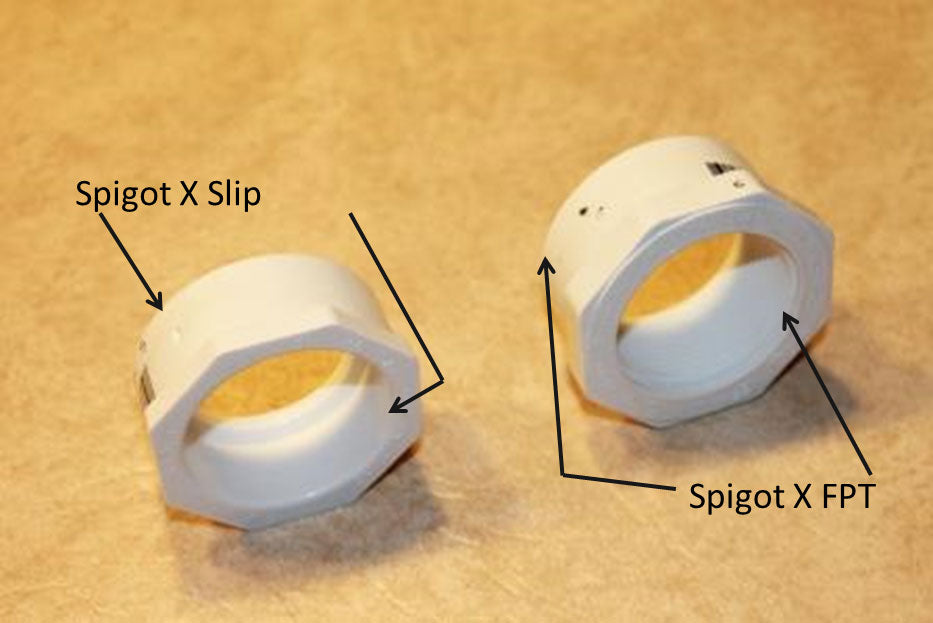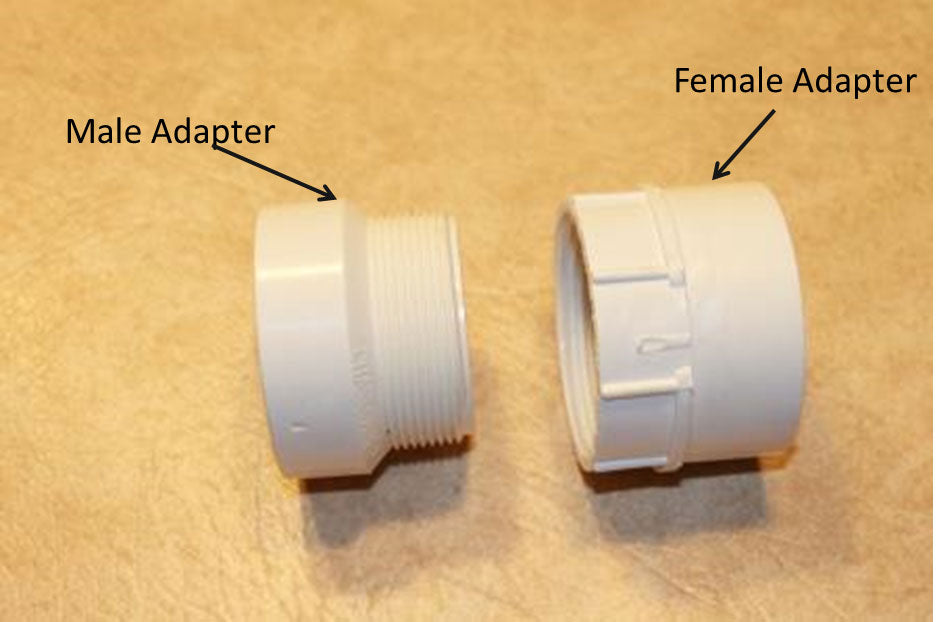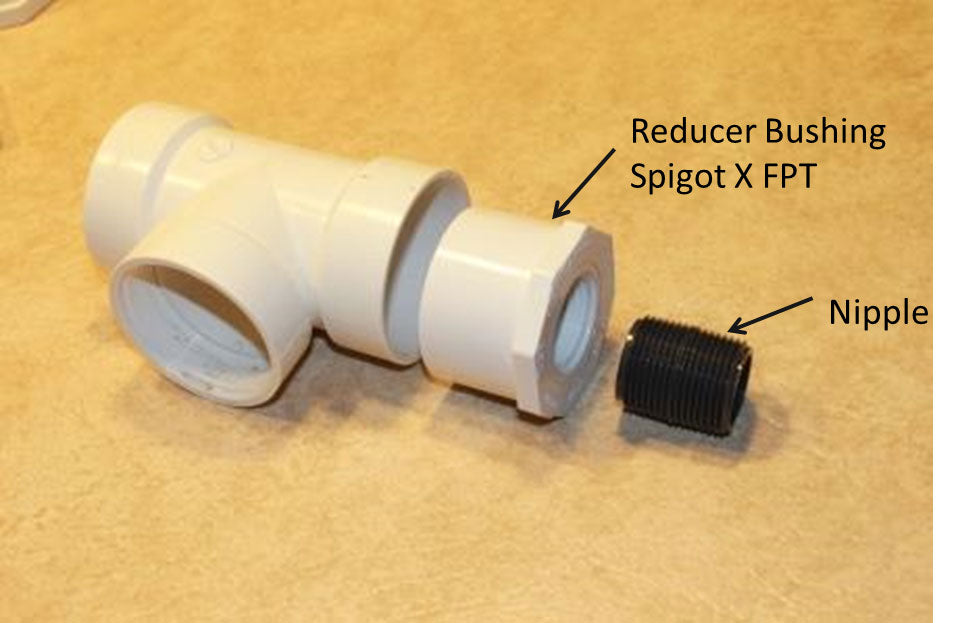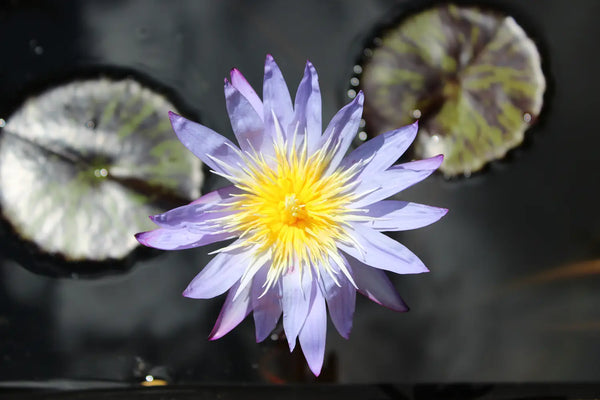Whether you’re replacing a pump or adding additional plumbing, understanding plumbing fittings can be very confusing to most people. The single biggest reason for confusion is probably due to its sizing. PVC pipe is size and named based on its inside diameter (ID) of the pipe. And this ID is nominal, meaning “in name only”. You will find that the nominal size is an average and will not be exact. For instance, if you were to measure a 1″ pipe, you might find that the ID may vary anywhere from .95″ to 1.05 or more. Smaller nominal sized pipes are further away from their actual size even yet. If you already have a pipe, just read the printing on it. This is a sure bet on the correct size.
Another area for confusion is some of the plumbing terminology.
Spigot=Street=Male and Slip=Socket=Female
For example, the adapter shown below on the left depicts a spigot x slip. It may be called out by some of the other terms shown in bold above, but they mean the same thing. It’s all in relation to male/female, just like life! So, the spigot x slip works like this: The spigot end will get glued into the pipe. For the other end, the pipe will get glued into the slip end.
MPT=NMPT=Male Threads and FPT=NFPT=Female Threads
Here’s another area for confusion. To learn more about how to measure your threads, read this article here. The adapter shown below on the right depicts spigot x FPT. Again, the interchangeable terms may be used but it goes back to the male/female relationship. So, the spigot x FPT works like this: The spigot end will get glued into the pipe. On the other end, a comparable-sized male fitting will screw into the FPT, using Teflon tape. The Teflon tape will be wrapped around the male fitting. Make sure when adding the Teflon tape that you add the tape in the opposite direction of the threading so it will screw in properly.
Male and Female Adapters
If you want to connect a pipe to male threads, you will need a female adapter. The female adapter will have internal threads on one end and a slip or socket, as it may be called, on the other end. You will Teflon tape your existing male threads and thread into the female end. You will then glue the pipe into the slip or socket side of the female adapter.
Along the same lines: If you want to connect a pipe to female threads, you need a male adapter. The male adapter will have external threads on one end and a slip socket on the other end. You will Teflon tape your external threads and thread it into the female threads. You will then glue the pipe into the slip or socket end of the adapter.
Reducer Bushing
If you want to connect to pipes or other fittings that have different nominal sizes, a reducer bushing can do the job. The reducer bushing shown below depicts a spigot x FPT. The spigot end will get glued into the pipe or adapter. The threaded male pipe (or in this example, a nipple) will screw into the FPT, again using Teflon tape.
While there are many more adapters and fittings, these are some of the common fittings used. We have a complete selection of fittings.





